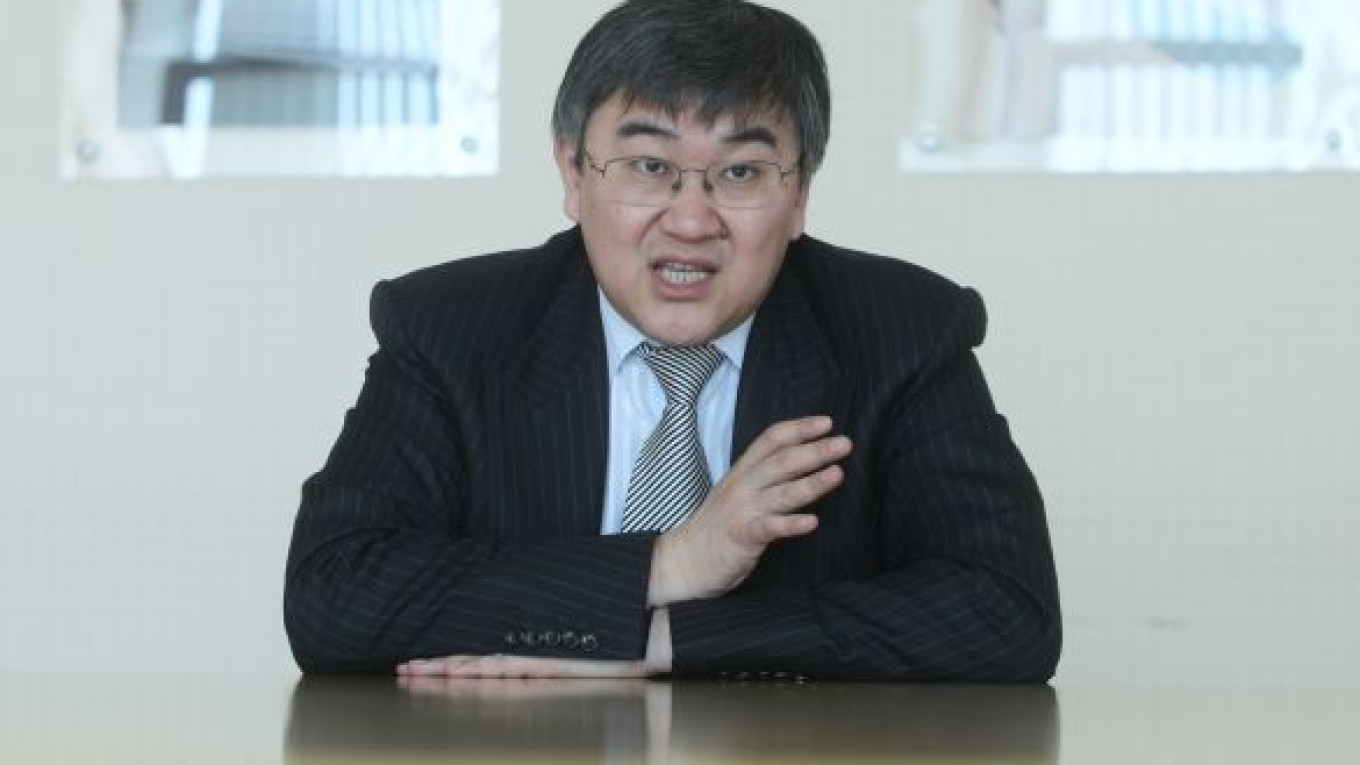Igor Kim snapped up cast-off assets from foreign banks pulling out of Russia, and now the banker says he wants to expand into Europe.
Kim, 47, emerged with his partners as an asset consolidator after the global crash of 2008 forced Western banks to downsize, buying the Russian commercial banking units of Barclays, WestLB, Morgan Stanley and Santander.
"We are looking at different assets, including in Central and Eastern Europe," Kim said in an interview this week.
"I don't buy minority stakes. To meet professional challenges and ambitions, controlling stakes are interesting."
Kim bought Expobank from Barclays for less than book value in 2011, and it now has opened a unit in Latvia, a European Union member state that attracted increasing Russian financial flows as Cyprus, a favored offshore haven, teetered.
Russian investors featured among those moving money out of Cyprus before its banking system was shut down in March, ahead of an EU-ordered bailout that imposed heavy losses on large depositors at the country's two main banks.
Kim remains one of the most secretive Russian bankers, despite being in business for 20 years. In the boom years of the 2000s he built up the URSA banking group that merged with MDM Bank in 2008.
That partnership did not work out, however, and Kim left after a couple of years due to disagreements with MDM's Sergei Popov.
Kim started over and, in addition to Expobank, he is a shareholder in Orient Express, a consumer lender with a strong presence in Siberia and the Far East.
Orient Express, ranked among Russia's top-30 banks by assets, bought Morgan Stanley's mortgage bank and Santander's consumer lending unit in 2010. WestLB and Expobank operate separately.
Kim, born in Kazakhstan, said he was buying assets from foreign banks as there was more confidence there would be "no skeletons" in balance sheets.
"Prices across the market were quite low, furthermore I thought there wouldn't be 'skeletons in closets' … I buy when I am fully confident that these skeletons are being taken out or if there is adequate provisioning," he said.
The price paid for each of foreign banks' assets were not publicly disclosed. "For now, in my practice, deals are happening at below capital, but it is hard to predict how it will change in a future," Kim said.
Kim confirmed that he had bid for Absolut Bank, the Russian unit of Belgian financial group KBC. An agreement was reached to sell Absolut to the pension fund of the Russian state railways, but the deal has not closed yet.
Forbes Magazine last estimated Kim's wealth at $500 million in 2011.
State-controlled Sberbank dominates the Russian market and has a balance sheet 60 times bigger than Orient Express's 223 billion rubles ($7.1 billion) in assets.
That does not bother Kim, who says the state banks are "like the weather, why should I complain?"
Expobank returned to profit under Kim, posting earnings of 1.3 billion rubles ($42 million) last year. Return on equity at 23 percent was just shy of Sberbank's impressive 24.2 percent.
Expobank more than doubled corporate lending to almost 14 billion rubles, while retail lending, into which bigger banks are expanding, added 12 percent to 3.7 billion rubles.
"As for retail business, I have my investment in Orient Express; why do I need another similar project? We are developing our corporate business now. If it is profitable to buy a retail bank tomorrow, we will buy it," he said.
A Message from The Moscow Times:
Dear readers,
We are facing unprecedented challenges. Russia's Prosecutor General's Office has designated The Moscow Times as an "undesirable" organization, criminalizing our work and putting our staff at risk of prosecution. This follows our earlier unjust labeling as a "foreign agent."
These actions are direct attempts to silence independent journalism in Russia. The authorities claim our work "discredits the decisions of the Russian leadership." We see things differently: we strive to provide accurate, unbiased reporting on Russia.
We, the journalists of The Moscow Times, refuse to be silenced. But to continue our work, we need your help.
Your support, no matter how small, makes a world of difference. If you can, please support us monthly starting from just $2. It's quick to set up, and every contribution makes a significant impact.
By supporting The Moscow Times, you're defending open, independent journalism in the face of repression. Thank you for standing with us.
Remind me later.


